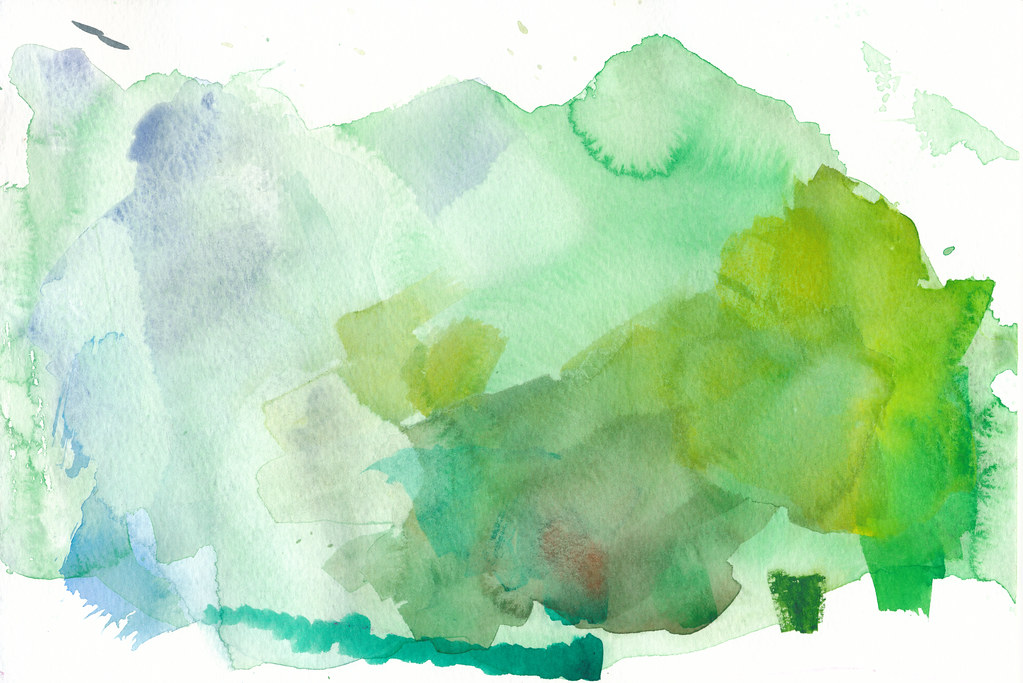Translated from the Malayalam by K. M. Ajir Kutty

Image Used For Representation
Suma felt a bit uneasy. Her problem now was that she would dream about different places. Of late she has been troubled with a roar; the roar of the waves heard from afar. Then, a tranquil expanse of blue, the sea.
One of a small number of books available in a single-room library in this hilly area says that it is things that slip out of our hands that we mostly dream about. Suma wondered whether the sea which had slipped out of her hands would have caused her so much restlessness. Even if she would lie trying to drive out the very thought of it, the roar of the sea was still there, not to mention the fascinating waves.
Then at intervals would appear red laterite stones, shrivelled cashew plantations, tall rubber trees bending horrifyingly, not in green, but in the demoniac hideousness of dry leaves.
Suma thought about the sea. She had never taken any interest in going to the seashore. The sea had been one incessant roar since her childhood. The sea was within sight from her house, at a distance. Suma has never seen houses destroyed by waves like in the pictures published in newspapers. Suma had never tried to imagine tall buildings being pounded by the raging sea with its roaring waves. The sea moved as a beautiful lake in the distance. Its silky breeze blew across, always touching Suma’s body.
Children from schools would go to see the sea. Even then Suma was not excited about it. The reason must have been that the sea was always there by her side with its high decibel music-like roar. Girls would slightly roll up their frocks and dance in the sea waves spilling over the shore. They would scream in joy whenever they were touched by the waves. Suma was actually watching the sea from a distance, standing away at the shoreline feeling the cooling comfort of droplets sprayed by the sea.
Her girl friends would ask her why she did not bring fish curry. The girls who hailed from seaside villages were voracious fish eaters. Fishes in different forms took incarnation in their lunch boxes. And they would share them among themselves with love. Suma did not like fish curry. She told them that it was just enchanting to watch fishes play in water. She would, then, have her meal of rice and chutney. Suma’s closest friend would warn her that her body would grow weak.
Boats were seen moving in the distance at sea. They must have been large vessels. But from near her house small boats appeared to be sliding into the distances. In the evening glow the sea in the distance became a red lake. And then in the darkness it became a drone brought in by the winds. In the drone Suma slowly slipped into sleep.
Then it was endless sea voyages through dreams. As a solitary traveller in a small boat Suma swayed over the wavelets. She extended her hand and touched the sea water that shone in the moonlight. Unknown fishes rose up and touched her hands. Sitting in her boat she splashed the water on the surface of the sea as though she were in a small pond. In its joy she looked up at the sky overflowing with moonlight and sang a song without sound. The lone travellers who flowed past her abutting her boat waved at her. She also waved back at them. They smiled at one another in the company of moonlight. By then stars had started rising here and there. They vied among themselves directing Suma in which direction to move to. They competed among themselves to call her resolutely and playfully. She waved at them with love. Falling foul of her, some stars vanished behind clouds. She beamed at them, too. As a swing the sea kept swaying her. Having been touched by a thin film of wetness, her dream refreshed. She pulled the blanket over her head.
Hearing the sound of the fish vendor coming on his bicycle, Suma pulled down the blanket. The day had advanced much since daybreak. A tipper-lorry roared up the road in front of the house. She got up, hastening. “What’s the fish today, Prabhakara?” the husband’s wife was heard asking. She would get up early. She suffered from lack of sleep. She hardly sleeps. She could be seen simply squatting down even during night time. Sometimes, at midnight, she could be seen peeling tapioca and slicing it having failed to get to sleep. If Suma ever ventured to help her, she would say affectionately, “No, you go and sleep, no problem, girl.” Suma loved her neither too much nor too little. Yet, Suma took trouble trying to love the near ones.
Suma got up unflustered and slowly opened the window on the wall of the house built with laterite stones which was still not covered with concrete. The day had not advanced that much. But still, how bright it was! The sun was boiling on the ground of the rubber plantation nearby. The overall atmosphere was gray. Two dogs were snarling and fighting each other with their bodies locked in animosity. The mother-in-law threw something at them, saying, “Go, dog.” She was bargaining with Prabhakaran over the price of the fish. “Then, Ammachi, you can take it for free, I’m going,” Prabhakaran said, moving up his cycle. “O it’s with your money that we have to cook some fish curry, go, you guy,” Ammachi phoophooed him. He said something, laughing. Suma looked out the window. Ammachi too was saying something even as she bought the fish in an earthen vessel. It must be sardines – Suma thought.
Red dust began to rise from the road, in front of the house, which was not tarred. Suma thought about the grains of beach sand. They would not fly about at all. They would get stuck on the toes glinting all the while. Yesterday, while Suma was going through the market, she had struck against loosened stones on the road and wounded her toe lengthwise. O, it was just now that she remembered it. The cloth she had bandaged the toe with was now black. Suma slowly stroked her foot. Then, she moved to Ammachi after straightening the nighty she had worn.
The leg was still painful, though slightly. When she tried to get out of the room, laming, two film magazines fell off the table after her hand struck them. They were bought for no particular reason at all from a shop at the market yesterday. In this place such periodicals are alone are available. Suma took the mags and put them back on the table. There were two old notebooks on the table. She slowly pushed them toward the image of God placed securely on the table. Meanwhile, she opened the books and took a look at the contents. Some figures by way of accounts were jotted down in it in an inelegant handwriting. She remembered her husband. He had gone on a journey for a week to keep accounts for someone. It was in the lorry of a friend and neighbour that he was travelling. He will come back in the same vehicle itself. Therefore, it is difficult to tell when.
Suma’s mind was now tranquil and calm. She got down to the courtyard. A dry wind was blowing. She walked unhurriedly towards the well and washed her face with the water kept in a bucket. It was not cool. She stroked her hair with wet palms. She looked into the well. In this area everybody would look like that to see if the water in the well is depleting. Suma looked to see if there were ripples. It was so deep, engulfed in darkness.
Suma, who stepped back into the house, tried to take the earthen vessel from her mother-in-law. Ammachi said: “O, no, I’ll clean and cut the fish. After all you won’t eat fish either. You go and sweep up the courtyard before the sun gets hotter. The courtyard has become unsightly with all those dry leaves falling on it. Go and sweep it clean.”
The sun was already there on the courtyard. From where does the sunshine come so early? Suma started to sweep the courtyard with a broom made of the ribs of palm fronds propped against a wall in the corner. Dust rose up. Just then a field rat from behind the well jumped onto the courtyard and scurried into the cassava grove. Suma made some way for it to run freely.
Suma started sweating. Sweat trickled down her neck. She now felt the presence of sweat in her armpits and on stomach. Suma kept slowly sweeping the courtyard.
“Is the tapioca ripe to be pulled out, Ammachi?” hearing the question of the chehi, the elder sister of the neighbourhood, Ammachi came to the courtyard.
“O, are you eyeing it to have some tapioca boiled in your house?” Ammachi cracked a joke.
“Oh, no, we didn’t get anything there this year. The field rats have ruined everything. These pests would not die even if you wanted to kill them away with poison,” chechi said.
“It’s so long since we have had a delicious fish curry with tapioca mush,” chechi said again.
“The tapioca here may not have ripened. We haven’t bothered to look in,” Ammachi said. “You send your boy and try plucking out two tapioca plants. They may not have ripened yet. It was sardines that Prabhakaran brought today. I’m not sure if it is fresh,” Ammachi said again.
The chechi went back into her house grumbling about something.
The labourers started to walk with plastic bags and pick-axes along the road in the morning. This road is steep gradient from here. They talked aloud as they walked. Suma stopped sweeping for the time being. They were eyeing Suma while they climbed the steep gradient talking loudly. She placed the broom on the other side of the elevated platform. Then she took some more water from the bucket kept by the well and washed her face.
“Will he come today, daughter? Had he told you anything?” Ammachi asked.
“May be coming. Sometimes it can be tomorrow. It depends on the coming of the lorry. Haven’t they both gone?” Suma said.
“There is a chance that he may come? Why can’t we make a dish of yam? He likes it much with fish curry.” Ammachi said.
“Right,” Suma said.
“O no, no need of it, girl – if she boils some tapioca, we can take some of it. What do you want in the morning? I took the leftover meal of yesterday. I was very much hungry.”
“I’ll take lunch now. I’m not hungry. Wasn’t it very late yesterday when I had something?” Suma said.
Suma walked toward the kitchen. Everything was arranged in order. Ammachi had been at it quite early in the morning. She now got a guilty conscience about not doing something. When she tried to take the tea container out, a big packet of dry fish fell from the kitchen cupboard, scattering all over. She repacked it tightly and began making some tea.
“After making tea, you put the rice pot on the fire. You try to eat something early, girl. You have grown tired,” Ammachi said aloud from outside while slicing the fish.
Suma took time to make some tea. She sat on the small stool in the kitchen and drank it slowly.
Then she washed rice and put the pot on the fire and came into the room.
She felt some fatigue as she had woken up early in the morning. She sat leaning against the chair. After dozing off for a while, it was on hearing a big noise that she woke up. O…the granite in the neighbourhood is being exploded for boulders.
A lorry was seen speeding up then.
Then, having been refreshed by the nap, she got up with agility.
What shall I do until the rice is cooked?
Suma took a magazine from the table. It had an instalment of a novel being serialised in it.
The lover says to his love: “I see a sea in your eyes…”
Suma grew fidgety and got up impatiently and forcefully kicked a chair in front of her. It swirled around and fell in a corner with a thud.
Then she angrily went into the kitchen to see if the rice had started boiling.
Also, read “Between Longings for what was and the Epiphanies of the Beyond: A Review of Hélène Cardona’s Life in Suspension” by Hiranya Mukherjee published in The Antonym:
Follow The Antonym’s Facebook page and Instagram account for more content and exciting updates.



























0 Comments